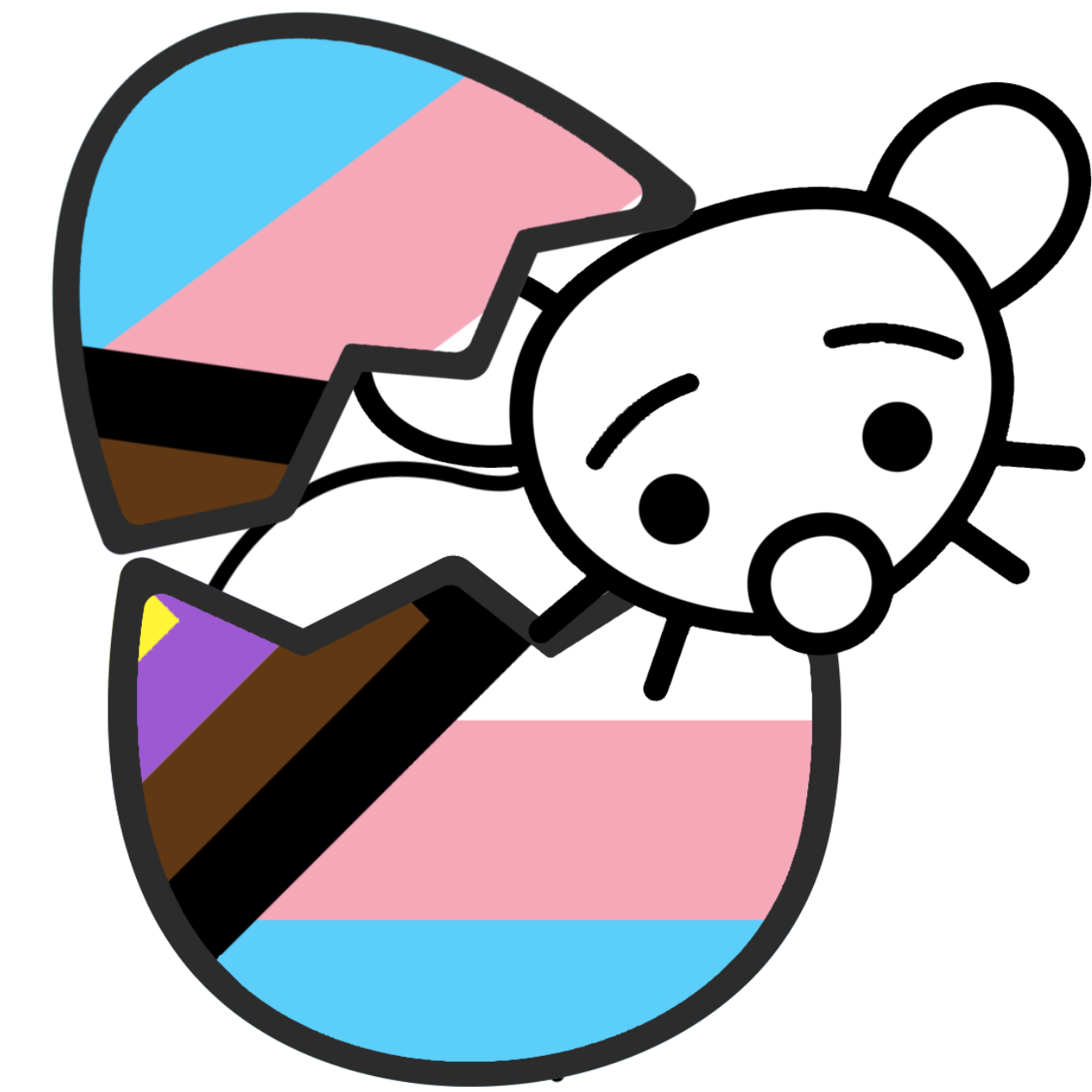

Binary gender is just a phase that cis people will eventually outgrow one day. Sure, you respect it, but it’s not like it’s going to be around for long.
Okay but this one’s actually true
tired


Binary gender is just a phase that cis people will eventually outgrow one day. Sure, you respect it, but it’s not like it’s going to be around for long.
Okay but this one’s actually true

We get it you love doing an islamophobia and will jump at any opportunity to hate on it.
This isn’t about islam right now bud, the topic’s colonialism.

I’m very happy I could help!
I also understand better regarding gender-affirming care. That seems very hard to receive currently, at least in the US. Perhaps it’s being politicized by those in power but I see more comments about not being able to receive any care than I do about successful treatment.
It’s very rough for a lot of trans people in a lot of states. I’m very lucky in that I had the privilege of being born in a state where a lot of the medical steps are covered by insurance, but a lot of trans people aren’t afforded that luxury. To make matters worse, some of these treatments are only gatekept when it comes to trans people, while cis people get access to those very same treatments.
Cis kids who may be going through puberty too early or too quickly are given puberty blockers, while trans kids who feel they’re going through the wrong puberty have those same puberty blockers withheld because they “could be dangerous.”
Cis women can be given testosterone blockers for various medical conditions such as PCOS, and may even be prescribed estradiol for postmenopausal symptoms or because they had a hysterectomy. Cis men could be given testosterone blockers like finasteride for male pattern baldness or prostate issues. Spironolactone is a high blood pressure medicine that also can acts as a testosterone blocker at high doses. I’ve even heard of cis men being prescribed testosterone if they simply have concerns about their T levels being too low.
Not to mention the various gender affirming surgeries many cis people go for such as breast augmentations, plastic surgery, hair transplants, even dangerous ones like the penile ligament surgery or BBLs.
Gender affirming care just isn’t politicized when it’s affirming a cis identity.
I’m sorry if I’m being too much, I just have a lot of thoughts on this.

If you figure it out, let me know. I’m a golden retriever girlfriend who falls in love way too quick with anyone and everyone.
Joking aside, it’s the feeling of camaraderie vs desire for intimacy for me, i think.

Question 1 - I think I understand the part where a person disagrees with the gender assigned to them at birth but when I see a transgender person, they seem to be striving to dress and look like the opposite gender.
You’re sorta conflating gender expression with gender identity here. Gender expression is the outward way one presents to society. Your gender identity is part of how you relate to those around you and society at large. A good example is with cis male drag queens. In drag, they’re presenting with a feminine gender expression, but they maintain their cis male gender identity.
What I mean by this is I rarely see a picture of a person choosing she/her but dressing and having hairstyles more associated with their assigned birth gender.
Further, with trans people, there’s an extra layer of scrutiny from our transphobic society. Trans people are pressured to appear as though they fit a binary gender expression in order to be recognized as their gender identity. (This also extends to those who fall outside the binary, they are expected to display an androgynous gender expression)
However there definitely still are gender non-conforming (GNC) trans people, just as there are GNC cis people, despite those pressures.
Does this mean that although they were born with certain reproductive organs at birth normally associated with a particular gender, they feel that some part inside them(soul, mind, etc) feels they should have been born with the opposite socially constructed gender?
This one is kind of fuzzy, I think every trans person kind of feels their own unique way about it. For example, some trans women keep their genitalia as-is and some trans men are fine with keeping their breasts and these things may not cause them as much dysphoria as it might another trans person. There is also a social aspect to it, in that if one person wants to be perceived as one gender, they may also want their “expected” genitalia, post-puberty body, etc. Note that those who chose not to medically transition are just as trans as those who do.
My second question and this is where I swear I am not aiming to offend. I will try to explain what led me to this thought - When a person chooses to take hormones that their body doesn’t make on it’s own or chooses to have surgery to rebuild sexual organs that they weren’t born with or to add/remove breasts, Is this element of trans life considered a mental illness?
What you’re describing are various steps of medical transition; to answer your question, no, medically transitioning is not a mental illness. There is mental illness in the trans experience however, and that is gender dysphoria.
Gender dysphoria is the word for the mental, psychological, emotional, and sometimes physical pain, anguish, or torment trans people may feel prior to receiving gender affirming care. Gender affirming care is considered to be the cure for gender dysphoria and may come in different forms: it can be medical transition, social transition, a good support system, therapy, or any combination of these things and more.
The only reason I ask this is I remember watching a documentary where people lived a life in which they felt, for example, that one of their arms didn’t belong to them and they pursued surgery to have a working limb removed. During the documentary, some of the people during therapy and medication were able to change their mindset to the point that they could live with the offending limb but there were some people that were traveling to other countries to have it removed (the doc was based in the US and they couldn’t find a doctor to perform the surgery). The only reason I ask is because of that, My mind goes to body parts that the person doesn’t feel belongs but that they were born with and not something socially attached to them.
A better comparison would be if you had a third arm, or if you were short one arm due to a genetic anomaly or injury. You may feel social pressures that you may not fit in or maybe you feel body dysmorphia about your body being different from other people you identify with. You likely would want to seek care to more closely align your body to one that is socially expected.
Never feel bad about asking questions! You’re making an attempt to learn and understand, and that’s way more than some people (allies included) ever do.


I think, generally, trolls piss off when they realize you actually know what you’re talking about and not just parroting popular opinion.


Yeah, but society at large has issues with exceptional gender expressions.
Cis people can struggle with their own gender identity when other cis people force expectations onto them.
The difference is that cis people don’t have to assert a gender different from what they were assigned at birth.


I’m literally not but you clearly have no interest in understanding the words I wrote, so I’ll just drop it.


practically everybody has been told to behave differently because “boys do X” or “girls do Y”.
I wish people would leave me the fuck alone when they think I’m not being a man correctly.
This is what I mean by ‘on a surface level.’
Oppositional sexism demands that those born in male bodies do masculine things, and those born in female bodies do feminine things. In other words it demands that everybody, not just those who are trans, conform to socially expected performances of gender.
However, cis people are afforded the security in feeling that their birth gender is the one that is ‘correct’ for them.
Cis people largely feel gender entitlement (projecting one’s own perception of gender onto other people, and privileging those perceptions over the way others understand themselves), hence:
A lot of people don’t really care much about what their gender is
Trans people do not get this privilege. Trans people face the same oppositional sexism that cis people do (that all people that exhibit exceptional gender expressions do), as well as having to face cis people’s gender entitlement being pushed onto them.
All this to say the joke is that the subject of the meme is in denial about their transness, and they are assuming that everybody feels the same way. The meme is a transfem centered meme- cis people may not get the joke; however many people DO care about their gender identity, but some identities are privileged over others.


On a surface level, sure, but most cis people never really have to grapple much with their gender identity.


Estrogen saved her


Liberals once again proving it’s always just been about aesthetics


One would have thought Dems may tone it down as the election draws closer… you know to sway the people withholding their votes.
Oh well 🤷


For my girlies: does anyone have a good recommendation for a sports bra or better yet a sports bra camisole? As well as a bralette suggestion.
I wanted to get something from Kohl’s the other day but the sizing seemed small on the nike sports bra camisole they had.


Oh my bad I’m confusing it for another manga.
Yeah Love me for who I am is definitely one of the best trans/queer manga.


Nevada helped me come to terms with the fact that I’d been repressing some of these feelings. It also really helped with internalizing that there’s no one singular “right” way to transition.
And also Whipping Girl, to echo what Ada said in this thread: It helped push me towards my path of transfeminism.
To a lesser extent (because I stopped reading early in the book due to ADHD tendencies) Otros Valles by Jamie Berrout. Reading a story (again, even what little of it i did read) by another trans Latina helped me build a bit more confidence in myself.
Btw dear reader, both Nevada and Whipping Girl are freely available for reading online! I always highly recommend both of these books, especially to other transfems or people just interested in being better allies to their transfem loved ones!!!


I liked it in general but IMO the chapter near the end at the school festival left me feeling kinda bad about the whole thing because it felt like the author pulled a hard 180.
There’s not a soul that will deny the homophobia present in islamic states, but that’s not the point of this article. You people just can’t help yourself.